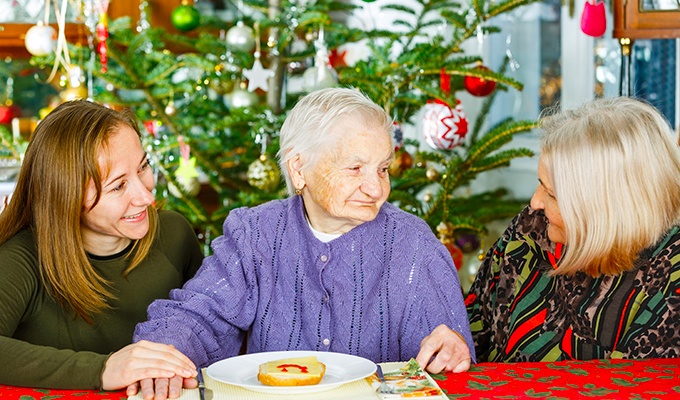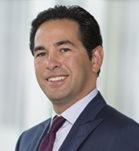

Dealing with Dementia – Holiday Cheer NOT Fear
by Scott Kaiser
A few tips to help family caregivers and those living with dementia make the most of the holiday season.
As we make our way into “the most wonderful time of the year,” there are some things to keep in mind to help us all feel that holiday cheer. For people suffering from Alzheimer’s disease—the most common form of dementia and a condition that affects nearly 6 million Americans—the holiday festivities can present some unique challenges. This can also be a particularly stressful time for family caregivers, who all too often bear the brunt of their loved one’s condition. That said, popular themes of the season—care, connection, peace, and joy—should serve those with dementia and their caregivers well and go a long way in assuring happy holidays and a healthy new year. So bring on the carolers, egg nog, and everything else; just keep these care fundamentals in mind and enjoy.
Plan ahead

Family caregivers—often caring for their loved one alongside work, additional family responsibilities, and other commitments—may carry a heavy load. Changes to routines can also be challenging for people with dementia. Preparing ahead, writing down schedules, planning meals and gatherings well in advance can do much to alleviate anxiety in the weeks leading up to the holidays and give you, and your loved ones, the best chance of enjoying the festivities when they arrive.
Accept help
The holidays, while joyful, can be a time of great stress as well. If you are feeling overwhelmed, ask for help. Friends and family are often heading to the store or running errands and can provide welcome assistance.
Get some fresh air
Hopefully, your regular routine includes time for exercise and time in nature, and it’s even more important to do your best to stick to a healthy routine through the holidays. Research shows that endorphins released during exercise reduce stress and depression, and can build brain resilience to approach challenges with a positive attitude. Plus, when it comes to dementia, we know that exercise really is the best medicine.
Special time to connect
Meaningful relationships and healthy social connections are an essential component of good health and well-being. Both for caregivers and those with dementia, engaging socially and cultivating a sense of connection are some of the best things we can do to maintain, and even improve, our brain health. At the same time, connecting with friends and family can also be overwhelming—the size of the group, unfamiliar faces, and major changes in setting can contribute to anxiety. So be sure to schedule plenty of downtime for all to relax and recharge.
Special time for yourself
When under significant stress, cortisol surges bringing many negative consequences like difficulty concentrating, low mood and increased risk of getting sick. Schedule some time for yourself to unwind and recharge with rest, hydration, and good nutrition. Like the airline safety message says: “put your oxygen mask on before assisting others.” All good care starts with self-care.
Practice kindness and gratitude
Manage your expectations for yourself and others. Things don’t need to be perfect, and inevitably, something will go the opposite of how you’ve planned. In the end, the most important thing about this time is the emphasis on togetherness and connection. Take deep breaths along the way, smile through the good parts, and remember to exhale through any rough patches.
Wishing you happy holidays from all of us at Pacific Neuroscience Institute.
For more information about Alzheimer’s disease and other dementia treatment, please contact us at the Pacific Brain Health Center at 310-582-7641 or visit us at PacificBrainHealth.org.
About the Author

Scott Kaiser
Scott Kaiser, MD, a board-certified family physician and geriatrician, is the Director of Geriatric Cognitive Health and provides specialty geriatric medical consultations at the Pacific Brain Health Center. Focused on the needs of older patients, he works with his colleagues to provide an integrated and holistic approach to their cognitive challenges. With this “whole person” approach, Dr. Kaiser works to connect patients and their families with a broad range of resources to support their overall health and well-being. In addition, Dr. Kaiser is Chief Innovation Officer at the Motion Picture & Television Fund (MPTF), a charitable organization serving members of the entertainment industry community. In this role, Dr. Kaiser leads efforts to improve population health and well-being through social and community-based interventions that aim to support people in living and aging well.
Last updated: December 13th, 2021